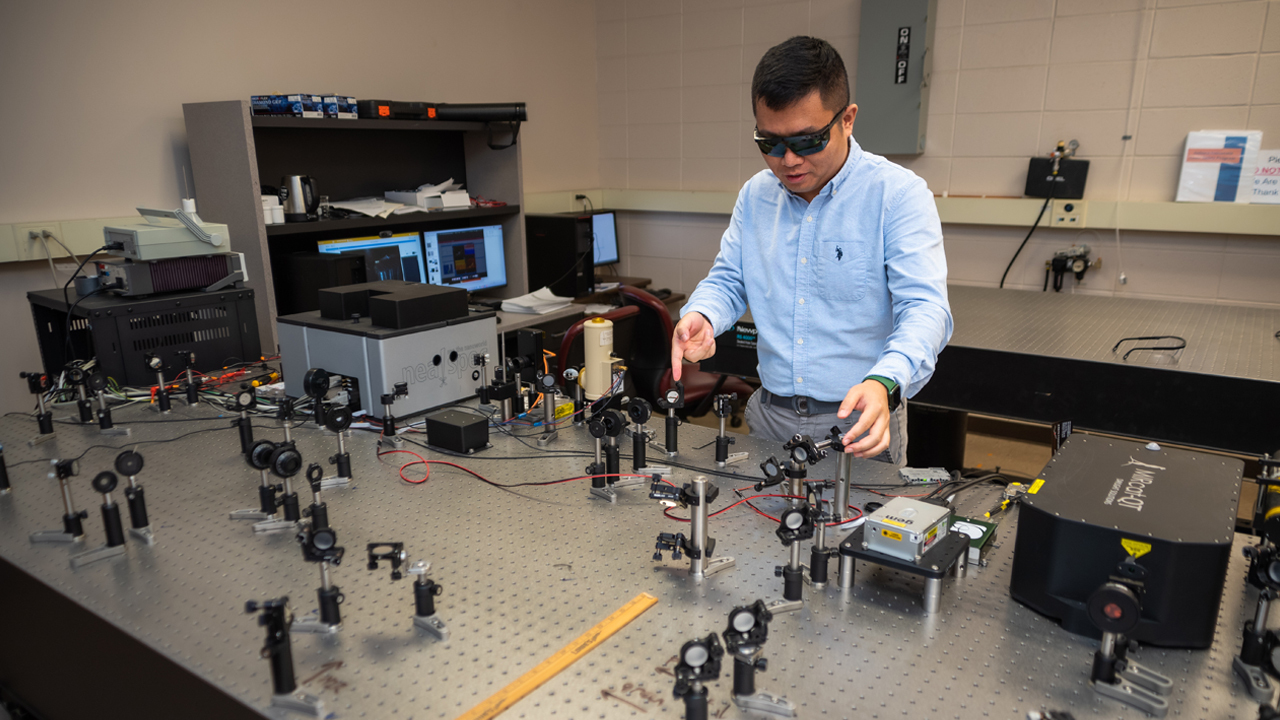Developing innovative methods for material response modification
Materials Engineering
By Jeremy Henderson

The National Science Foundation (NSF) recently awarded Siyuan Dai, assistant professor of mechanical engineering, $720,000 for a CAREER project aimed at developing innovative methods for material response modification benefitting a variety of applications from computer science to biomedicine.
“The proposed research will establish a conceptually new material engineering methodology to establish distinctive material properties for a range of functionalities. It will fill the scientific gap of spatial heterogeneity of isotopes,” Dai said.
Though isotopes exist everywhere, they are always evenly distributed in space.
“I want to reposition isotopes and spatially engineer them for new material properties,” Dai said.
To do so, he will use state-of-the-art techniques to build van der Waals heterostructures comprised of various monoisotopic components in order to establish advances over current isotope-homogenous material systems.
Dai said the project’s prototype heterostructures can be modified to precisely manage nanoscale energy capacity, electromagnetic wave transmission and photonic density of states for utilization in biosensing, energy transfer, infrared light sources and quantum information and technologies.
Researchers

